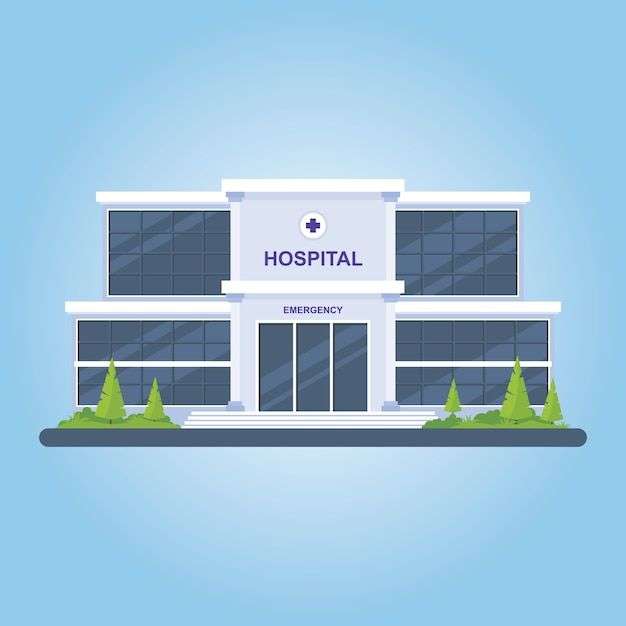
The Essential Role of Veterinary Hospitals in Pet Healthcare
June 17, 2024
Building a Hospital in the UAE: A Comprehensive Guide
June 22, 2024Modern hospitals are confronted with numerous challenges, from escalating operational costs to the continual pursuit of delivering exemplary patient care. Amidst these challenges, operational excellence emerges as a pivotal factor capable of significantly elevating hospital performance and patient outcomes. But what exactly constitutes operational excellence, and why is it indispensable for today’s healthcare institutions?
Understanding Operational Excellence
Operational excellence entails the perpetual refinement of organizational processes to generate value for customers—in this context, patients—through heightened efficiency, quality, and productivity. Within healthcare, it signifies optimizing hospital operations to ensure top-tier patient care, safety, and satisfaction while upholding cost-effectiveness.
Benefits of Operational Excellence in Hospitals
1. Improved Patient Care and Safety
Operational excellence fosters standardized procedures and best practices, thereby minimizing errors and bolstering patient safety. Hospitals can consistently deliver high-quality care, mitigating the likelihood of adverse events.
2. Enhanced Staff Productivity and Satisfaction
By streamlining workflows and eradicating inefficiencies, operational excellence enables healthcare professionals to concentrate more on patient care and less on administrative duties. This enhances productivity and augments job satisfaction among staff.
3. Cost Reduction and Financial Stability
Efficient operations empower hospitals to curtail waste, optimize resource allocation, and manage costs effectively. Financial stability allows for investments in advanced technologies, staff development, and facility enhancements, thereby further enriching patient care.
4. Better Patient Outcomes
Efficiently operating hospitals translate to reduced wait times, expedited diagnoses, and more effective treatments for patients. These enhancements contribute to superior overall patient outcomes and heightened satisfaction levels.
Core Elements of Operational Excellence in Healthcare
1. Leadership Commitment
Effective leadership is instrumental in propelling operational excellence forward. Hospital leaders must pledge to continuous improvement, establish clear objectives, and support staff in achieving these goals. Engaged leadership nurtures a culture of excellence that permeates throughout the organization.
2. Patient-Centered Care
Central to operational excellence is a steadfast commitment to meeting patient needs. Hospitals must devise processes and services that prioritize patient comfort, convenience, and care quality. This necessitates active listening to patient feedback and perpetual refinement of services to exceed expectations.
3. Culture of Continuous Improvement
A culture promoting ongoing improvement inspires healthcare personnel to perpetually seek ways to refine operations. This culture thrives on regular training, transparent communication, and the adoption of improvement methodologies such as Lean, Six Sigma, and Kaizen.
4. Data-Driven Decision-Making
Data serves as a cornerstone for pinpointing areas needing enhancement and gauging the efficacy of operational adjustments. Hospitals should harness data analytics to make well-informed decisions, monitor performance metrics, and stimulate continuous improvements.

Strategies for Implementing Operational Excellence
Implementing operational excellence necessitates a systematic approach. Hospitals should commence with a comprehensive evaluation of current operations, identify key areas for improvement, and draft a meticulous action plan. The involvement of all staff members is imperative for successful execution.
Implementing Operational Excellence in Hospitals
Implementing operational excellence requires a systematic approach. Hospitals should start with a thorough assessment of current operations, identify key areas for improvement, and develop a detailed action plan. Engaging all staff members in the process is crucial for success.
Technology and Operational Excellence
Technology plays a pivotal role in enhancing hospital operations. From electronic health records to telemedicine, innovative technologies can streamline processes, improve patient care, and reduce costs.
Training and Development for Operational Excellence
Continuous staff training is essential for sustaining operational excellence. Hospitals should invest in regular training programs that equip staff with the skills and knowledge needed to improve processes and deliver excellent patient care.
Measuring Success in Operational Excellence
To measure the success of operational excellence initiatives, hospitals should use key performance indicators (KPIs) such as patient satisfaction scores, readmission rates, and operational efficiency metrics. Regularly evaluating these metrics helps hospitals stay on track and make necessary adjustments.
Challenges and Solutions in Achieving Operational Excellence
Achieving operational excellence is not without its challenges. Common issues include resistance to change, limited resources, and maintaining momentum. However, hospitals can overcome these challenges by fostering a culture of innovation, securing leadership support, and leveraging technology.
Conclusion
Operational excellence is the linchpin for contemporary hospitals aiming to deliver exemplary patient care, enhance staff productivity, and achieve financial sustainability. At Hospertz Healthcare Consultancy, we emphasize continuous improvement, adept data utilization, and strategic investments in technology and staff development. By doing so, hospitals can overcome challenges and achieve enduring excellence.




